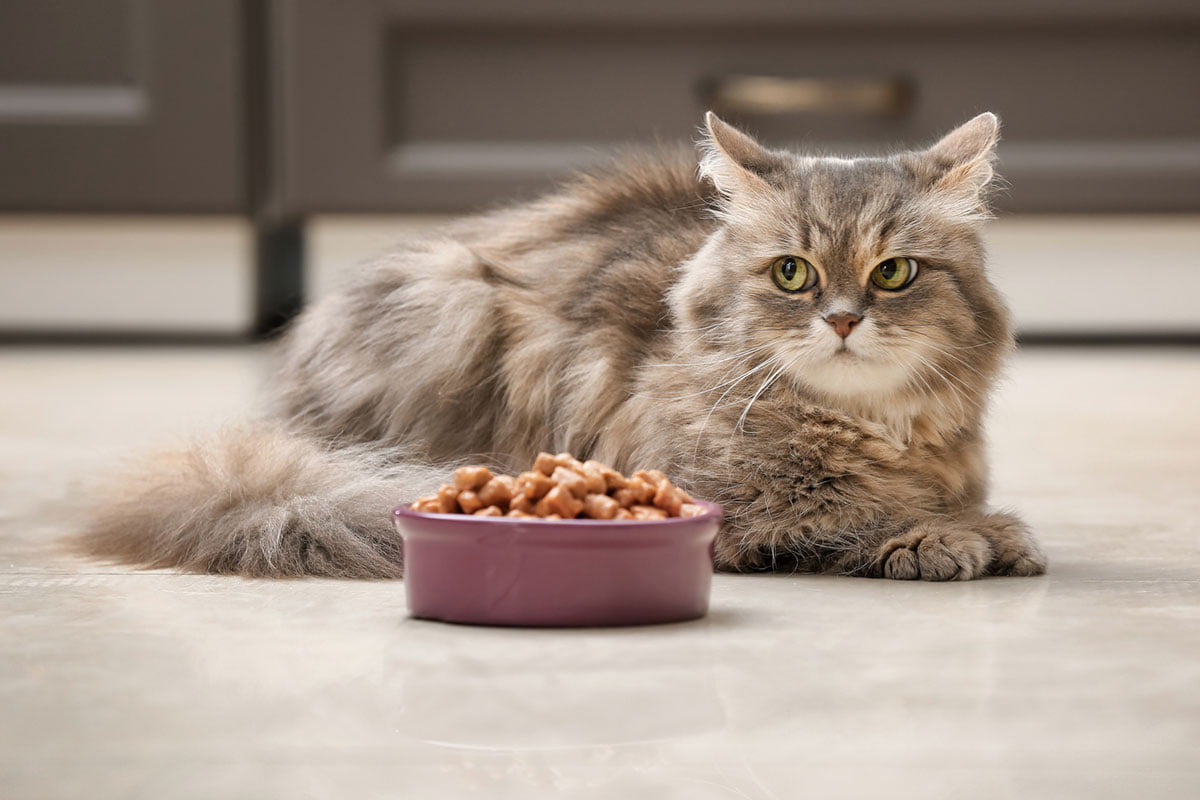What Foods Should You Not Feed a Cat
What to Feed a Cat That Won't Eat
What Should You Feed a Cat
that Won't Eat…
Cats seem to have a knack for playing hard to get with their humans and still having their fur parents eating out of their paw. Every cat has their own special way of pushing their human away, only to reel them back in with their sweet eyes, gentle purr, and soft nuzzling. Cat parents are used to this feline behavior but when your cat won't eat, that always causes fur moms and dads to worry.
Fortunately, there are both reasons that a cat won't eat besides it being sick and ways to entice a cat to eat. If you are dealing with a cat that won't eat, check out these reasons why that might be and the simple solutions to your cat's hunger strike.
Reasons a Cat Won't Eat
For most cats, mealtime is a sacred time. Regardless of whether they eat alone, at a certain time, or throughout the day, cats love to eat. For some cats, if their bowl is not filled to a certain level, they start to inform you of their impending starvation.
Therefore, when your cat won't eat you will notice. The lack of meowing and following you around will be evident within a few hours. Of course, this is troubling to you as a pet parent and with good reason, as cats need protein to have the energy to use their fat reserves to sustain themselves. Essentially, they need to eat meat (or some kind of protein) to protect themselves from starving.
So, here are a few different reasons that make a cat less inclined to eat:
What to Feed a Cat that Won't Eat
Cats are creatures of habit but like everyone else, they love treats and special attention given to their daily grub. Therefore, for most common (less serious) reasons a cat won't eat, you can usually entice them by using one of these methods:
Turn Up The Stink: If you want your cat to notice that you are giving them something that they really don't want to miss, make it stinky! Wet, canned food is the best for this. If you really want to go all out, seafood varieties of wet, canned food are the ticket!
Speaking of Fish: If you only have dry food for your cat but you want to try to make it more appealing, mix the water from canned tuna fish (or anchovies) in with the food to make it soft and stinky.
Heat Up Canned Food: Putting soft, canned food in the microwave for 5-10 seconds will help increase the scent of the food, which will make it more enticing. Just make sure it is not too hot!
Meat-Flavored Baby Food: If your kitty is really having a difficult time, try giving them some meat-flavored baby food. While it is probably not the tastiest treat, it might help them get some food down, which can give them the strength to get better.
Fresh Meat: Make sure you cook it first, but fresh meat can help entice your cat to eat in a way that kibble might not be able to achieve. After all, there is something primal about fresh meat and that might speak to their instincts. Hopefully, this will override their current issue enough to allow them to get some food in them. Plus, who doesn't like a fresh meal every once and a while?
Make Sure the Bowl is Conducive to Eating: While this suggestion is more how you feed, rather than what you should feed a cat that won't eat, it is a quick and easy fix. Some cats don't like narrow, dirty, or big bowls. So, make sure the food is easy to get to and the dish is clean (especially if you give your cat wet food). On the bright side, this means that there is nothing wrong with your cat; they're just picky!
In summation, as you can see, there are many different reasons why your cat won't eat. Cats have problems, emotions, colds, and preferences just like you do. Sometimes, something gets a little tied up in the digestive process and your cat won't eat.
Fortunately, most of the time, your cat can be enticed to at least take a few bites when you learn what to feed a cat that won't eat. However, if your cat continues to disregard food for more than a day, even if there are no other symptoms, get your cat in to see a veterinarian immediately. A cat that won't eat can be a serious problem and it's up to you to help your cat before that problem gets any worse.
Source: https://thedailycat.com/what-to-feed-a-cat-that-wont-eat



0 Response to "What Foods Should You Not Feed a Cat"
Post a Comment